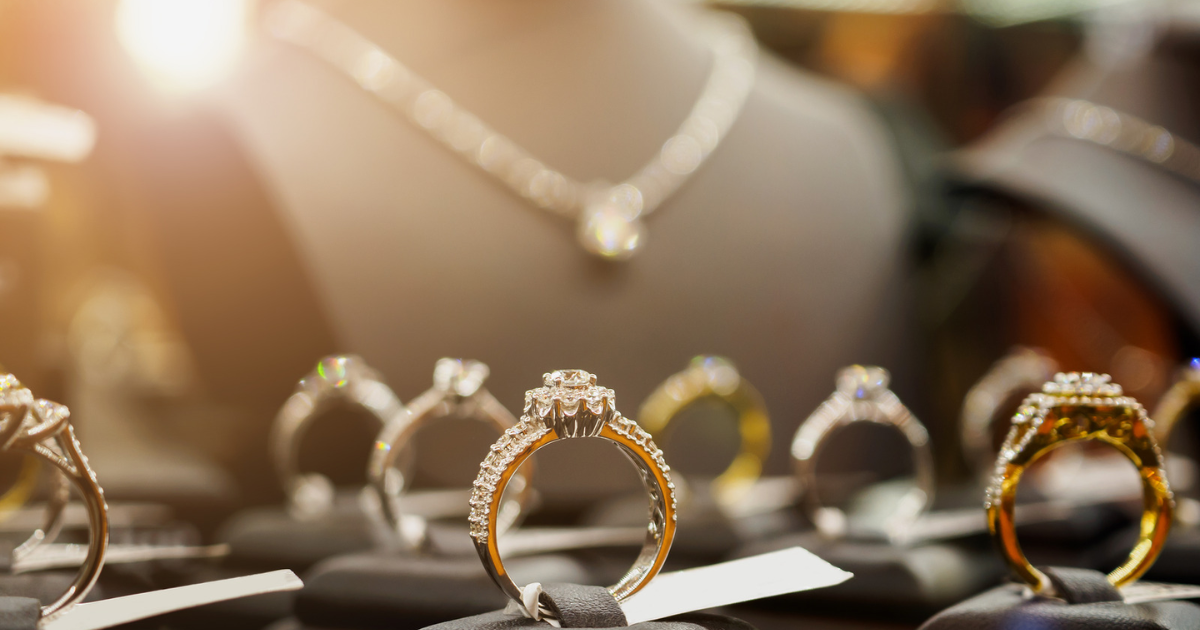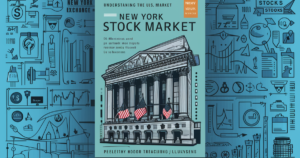A jewelry business is a company that designs, creates, and sells adornments made from precious metals, gemstones, and other materials. It involves crafting items like rings, necklaces, earrings, and bracelets, often with intricate designs and artistic flair.
The epitome of everlasting beauty with our Permanent Jewelry business, where every piece tells a story of enduring elegance. We meticulously craft each item using the highest quality materials and expert craftsmanship, ensuring a lifetime of cherished moments. From classic designs to modern masterpieces, our collection offers a timeless allure for every style and occasion.
Our permanent jewelry business prides itself on offering not just accessories, but heirlooms meant to be passed down through generations. Each piece is crafted with precision and passion, using only the finest materials sourced ethically and sustainably. With a focus on timeless elegance, our collection ranges from classic designs to contemporary statement pieces, ensuring something for every discerning taste.
Make a Business Plan
As with any new business, you’ll need a comprehensive plan to define your goals, audience, products/services, marketing strategies, finances, and operations. This living document will serve as your roadmap and help you stay organized and focused as you navigate the startup process.
Start by clearly describing your permanent jewelry concept and unique selling proposition. What will set your brand apart in an increasingly crowded market? Perhaps you’ll specialize in minimalist, understated designs or offer a wide range of metals, gemstones, and customization options. Identifying your distinct brand identity early on is crucial.
Now perform comprehensive market research to analyze your competition, understand pricing and trends, and identify potential gaps or opportunities you could capitalize on. Finding an underserved niche to target can help you succeed in a saturated industry.
Investment Ideas
Your startup and ongoing costs by drafting a financial plan that covers expenses like equipment, inventory, marketing, rent/overhead, labor, etc. Map out your financing options whether that’s tapping into savings, seeking investors, crowdfunding or small business loans. Be realistic about how much capital you’ll need for at least the first year of operation.
Your operational plans for sourcing materials and labor, managing inventory, interfacing with customers, processing payments, and more. Proper systems and processes will keep things running smoothly.
Get the Proper Certifications and Licenses
The jewelry industry has strict regulations you’ll need to adhere to, especially when handling precious metals and gemstones. Requirements vary by location, so do your homework on what’s needed for your city/state. At minimum, you’ll likely need to obtain a sales tax license and reseller permit which allows you to purchase inventory exempt from sales tax.
You may also need specific licenses related to dealing in precious metals, gemstones, or jewelry. Permanent jewelry makers technically perform body piercing to install the jewelry, so you might need to get piercing/body art certifications and permits depending on your region. Check your local health department regulations. Beyond licenses, you’ll want to complete relevant training courses on metalsmithing, jewelry design, gemology, and permanent jewelry installation.
Read More: businessmigs.com
Choose Your Niche and Jewelry Lines
With permanent jewelry’s rising popularity, there’s fierce competition in many oversaturated product categories like dainty necklaces, huggies, and single stone rings. Make your brand stand out by strategically specializing. Perhaps you could become the go-to for bold, avant garde permanent jewelry pieces featuring unique materials and sculptural designs.
Or develop product lines dedicated to couples/wedding jewelry, cultural/symbolic jewelry, or high-end bespoke jewelry personalized for each client Identifying a distinct aesthetic and specializing in certain jewelry types or customer segments will help attract a dedicated following. Just be sure to thoroughly evaluate demand for your chosen niche before investing too heavily.
Establish Your Supply Chain
To start producing permanent jewelry, you’ll need to source all the necessary raw materials and components for your product lines. This includes metals, gemstones/diamonds, chains, findings like clasps and jump rings, tools, etc. Shop around to find reputable suppliers you can develop strong relationships with over time. Compare prices, quality, reliability, minimum order quantities and lead times.
Don’t just go with the cheapest option if quality will suffer. Your materials are the backbone of your products so invest wisely. Gemstones and diamonds are often sourced from overseas suppliers and importers. Do your due diligence on certifications, sourcing locations, and ethical practices when dealing with precious gems.As for tools, jewelry making equipment like torches, pliers, hammers, mandrels and more can be purchased from various online and brick-and-mortar jewelry supply stores.
Consider Eco-Friendly and Ethical Sourcing
With increased consumer demand for sustainable and ethically-produced goods, implementing green practices and prioritizing responsible sourcing could be a savvy way to differentiate your permanent jewelry brand. Recycled precious metals as much as possible. Not only is this better for the environment through reducing mining activities and emissions, but it can save you money on materials too since recycled metals are less expensive than newly-mined metals.
Ethical Certification
Source your gemstones and diamonds from suppliers participating in ethical certification programs like the Kimberley Process for diamonds, along with standards from organizations like the Responsible Jewellery Council. This helps ensure gemstones are sourced through legal channels, not from conflict areas, and with fair labor practices.
For packaging, go green by using recycled/recyclable materials and minimizing excess waste. Things like fabric pouches, wooden boxes, and seed paper make great eco-friendly jewelry packaging alternatives. There’s certainly added cost and effort involved in sourcing ethically and operating a green jewelry business. But doing so authentically can help attract socially conscious customers, boost your brand reputation, and future-proof your business as eco-trends only continue growing.
Decide on a Business Model
There are several potential business models to consider for your permanent jewelry company. Each has its own pros and cons in terms of overhead costs, scalability, flexibility and profit potential:
Brick-and-Mortar Retail Store
Owning a physical storefront allows you to have a professional studio space for consultations and installations while showcasing full product lines. However, rent, utilities and other overhead make this the most expensive route. You’re also limited to one geographic location.
Mobile Studio
Operate as a mobile permanent jewelry service by acquiring a van/trailer outfitted with a portable studio. Travel to clients, events, popups and more with all your gear. Much lower overhead but you’ll need to constantly market your mobile locations.
E-commerce
Selling permanent jewelry online through your own website or third party platforms allows you to reach an international audience with lower overhead than a physical store. However, you’ll likely need to partner with or hire other professional studios for in-person installations.
Wholesale
Rather than dealing directly with consumers, develop relationships with jewelry retailers to sell your permanent jewelry pieces wholesale as a supplier. Providing inventory to multiple retail partners creates predictable bulk orders but reduces profit margins.
Hybrid Model
Combine multiple models like operating an e-commerce store and mobile studio. Or sell wholesale to retailers while maintaining your own direct sales channels too. This diversified approach is great for maximizing revenue streams. Consider starting small and lean with lower risk models like mobile or e-commerce. Then scale into higher overhead operations like a storefront if demand supports it.
Create an Amazing Customer Experience
Permanent jewelry inherently involves much more commitment and permanence compared to traditional jewelry. So delivering an exceptional customer experience is absolutely paramount for building lasting client relationships, earning trust, and driving repeat sales and referrals. Offer in-depth, highly personalized consultations to educate customers and guide them toward jewelry designs, metals, gemstones and sizes that perfectly suit their style and anatomy.
Provide visualizations and mockup pieces so they can get a true feel before committing. During the installation process, make clients feel comfortable, informed and assured about the permanent nature of the jewelry. Explain procedures clearly, use proper safety precautions, provide quality aftercare instructions, and make them feel special overall.
FAQs
What kind of permanent jewelry sells best?
Dainty chains, huggies, dainty rings, and minimalist bracelets are very popular. Customized, high-end bespoke pieces can also command premium prices.
How much does it cost to get started?
Plan for at least $10,000 to $50,000 in startup capital. Having 6-12 months of operating expenses in reserve is advisable.
Do I need any special certifications?
You’ll need basic business licenses and likely body piercing certifications. Formal metalsmithing and gemology training is highly recommended.
Where can I source precious metals and gems?
Work directly with refiners, smelters, importers and reputable industry suppliers. Attend trade shows to vet vendors and see products in person.
How can I appeal to eco-conscious shoppers?
Use recycled metals, ethically-sourced gems, and sustainable packaging. Get certified by groups like the Responsible Jewellery Council.
Conclusion
Breaking into the permanent jewelry industry requires immense planning and commitment. From securing proper licenses and certifications to meticulously vetting suppliers and crafting your unique product niche, there are numerous crucial factors to get right. However, for those willing to put in the hard work, passion, and upfront investment required, running a successful permanent jewelry store.
Appetite for meaningful, lifelong jewelry grows, there is immense potential to build a brilliant, enduring business celebrating everlasting accessorizing and self-expression through stunning metalwork and gemstones. With diligent preparation and an unrelenting drive to deliver exceptional craftsmanship and customer experiences, you can make your permanent jewelry dreams a radiant reality.
















1 thought on “How To Start Permanent Jewelry Business”